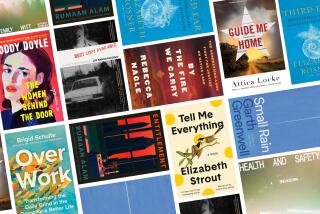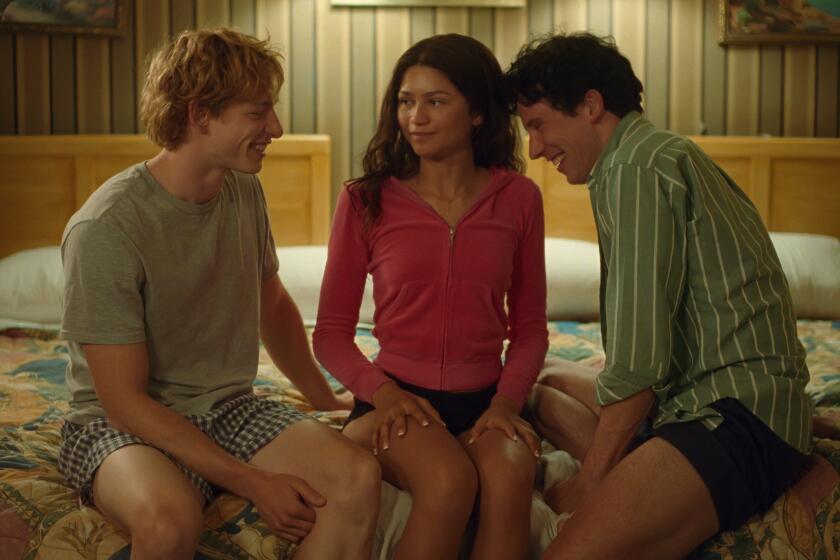The Saturday Read: ‘The Weight’ by Andrew Vachss
To read Andrews Vachss at his best is to take a ride on the dark side, where the plight of the oppressed and vulnerable — most notably abused children — becomes the catalyst for revenge-fueled street justice. It’s meted out by scarred, scary protagonists you’d never think about crossing. Chief among them was Burke, a career criminal, mercenary and PI whose mission to seek vengeance on pedophiles, child pornographers and serial killers would make Stieg Larsson’s Lisbeth Salander look like a Sunday school teacher.
Burke and his outlaw “family of choice” cut a blood-spattered swath through the underbelly of American culture in 18 novels before Vachss ended the series in 2008, amid the loud lamentations of his fans in the U.S. and abroad. Describing why he didn’t miss his long-running protagonist, Vachss told an interviewer, “Burke … got the job done. I needed a guide to Hell, and an angel wouldn’t do.”
During and after the Burke series, Vachss has introduced other characters and new takes on the crime novel. In addition to earlier stand-alone novels, last year’s “Haiku” featured a diverse group of homeless men forming another family of choice that’s searching for things they’d lost along life’s road.
“Heart Transplant,” a recently published graphic novel illustrated by Frank Caruso, illuminates and attempts to eradicate bullying. They are joined by Vachss’ new novel “The Weight,” featuring Tim “Sugar” Caine, another career criminal with a strict moral code he spells out early in his interrogation with the NYPD: “I’m a professional, not a punk with a pistol. You’ll never see my picture on a security camera sticking up a bodega. Or jacking some guy in a suit while he’s standing at an ATM. I’m a thief and I do clean work. I don’t hurt people for money, I don’t set fires. I don’t do any of those sicko sex things.”
Caine’s been hauled into the precinct not because of the jewelry heist he and a group of fellow thieves pulled off over the Fourth of July weekend, but for a brutal rape. Caine’s been picked out of a photo lineup by the victim in what seems like a police setup.
Rather than confess and be forced into giving up his accomplices and Solly Vizner, the planner of the heist, Caine takes the weight of the bum rap, gets convicted and sentenced to five years in prison. Vachss gives an excellent, albeit meandering, account of Sugar’s time in prison, the lessons he learns about pedophiles, the weights he lifts, the code of silence he keeps.
But inside that silence, Sugar is raging to find the real rapist and deliver him to his victim: not only to clear his name but to provide her with a bit of rough justice.
Revenge is on Sugar’s mind when, upon his release, he seeks out Solly, who kept his share of the heist safe for all those years and who sets him up with a new identity and a place to stay. But Solly has bigger problems than Sugar’s quest for justice: One of the men on the heist job, Jessop — who was supplied by Albie, another, now deceased planner — is in the wind and very much a threat (so Solly feels) to his and Caine’s freedom.
Despite his earlier protestations about being a thief and not a killer, Caine’s peculiar sense of loyalty and reputation for “doing the work” result in him seeking out Jessop in Tallahassee, Fla., where he is hosted by Albie’s wife, Rena, a woman with a history of abuse that rings true with other Vachss characters.
Once Sugar is in Florida, the plot twists and moral dilemmas the novel presents test his moral compass and his physical prowess in ways that seem not altogether consistent with his professed moral code. Nonetheless, Sugar and Rena are a canny, lethal team that bears watching in the hopes they become future players in Vachss’ ever-growing arsenal of tarnished, avenging angels.
Woods is a book critic and the author of the Charlotte Justice mystery series.
More to Read
The biggest entertainment stories
Get our big stories about Hollywood, film, television, music, arts, culture and more right in your inbox as soon as they publish.
You may occasionally receive promotional content from the Los Angeles Times.










